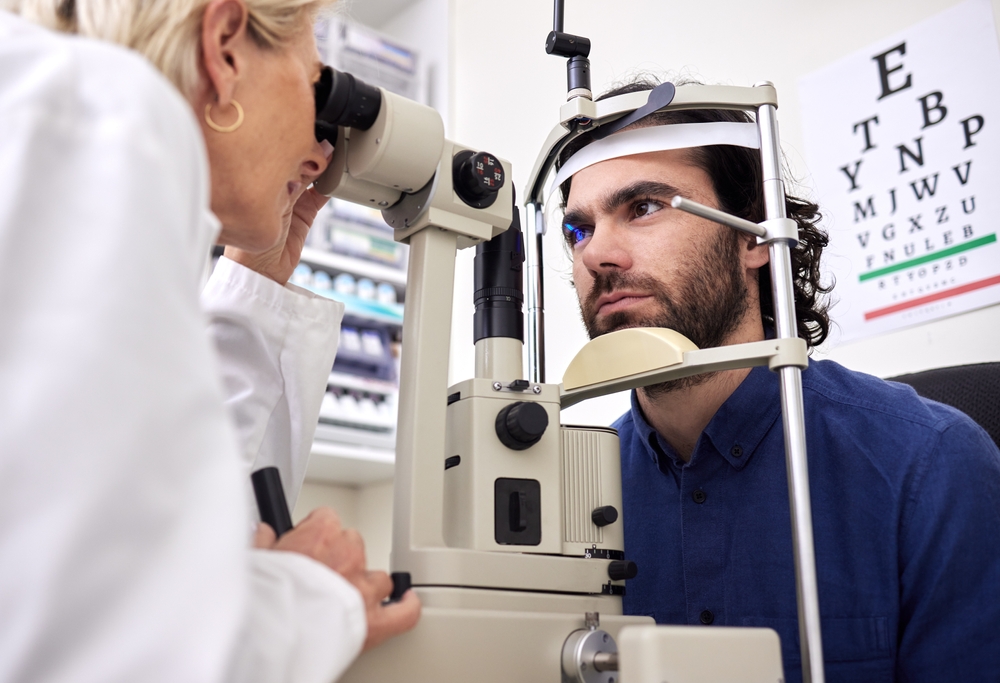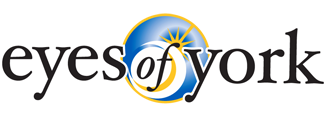What Questions Should I Ask at My Next Eye Exam?
August 1, 2024
Comprehensive eye exams are the best way to ensure clear vision and healthy eyes; they also allow you to ask questions about your eyes, eye conditions, and vision correction. If you're unsure what to expect at an eye exam or want to feel prepared, keep reading to find out the best questions to ask at your next eye exam.
What Tests Will You Be Performing On My Eyes Today?
 A comprehensive eye exam should include:
A comprehensive eye exam should include:
- Tests for visual acuity determine how well you see at all distances
- A visual field test to assess your peripheral vision
- A color vision test to look for changes in how you perceive colors
- A tonometry test to measure eye pressure and screen for glaucoma
- A dilated eye exam to examine the structures within your eye
Many eye doctors offer optical coherence tomography (OCT), a non-invasive retina scan that produces detailed 3D, color-coded, and cross-sectional digital images of the structures within the eye. This technology can replace a dilated eye exam for many patients.
Have There Been Any Changes to My Vision?
The visual acuity test, which tests for common refractive errors, including nearsightedness, farsightedness, and astigmatism, helps your ophthalmologist at Eyes of York assess the accuracy of your vision. They can compare the results with your existing prescription to see if your vision has changed since your last exam.
Updating your vision prescription is vital to clear, healthy vision. Wearing visual aids with an out-of-date prescription can lead to eye strain and fatigue, headaches, reduced depth perception, and decreased visual acuity.
Am I at Risk for Developing an Eye Condition?
As you age, you may be at an increased risk for developing eye conditions like cataracts, glaucoma, and macular degeneration. During a comprehensive eye exam, your eye doctor will look for signs of eye conditions.
They will also review your health history and ask if there is a family history of any of these eye conditions. Many eye conditions are hereditary, meaning your risk of developing certain eye conditions will increase if you have a family history.
What Signs or Symptoms of Common Eye Conditions Should I Watch Out For?
Some of the most commonly diagnosed eye conditions share many of the same signs and symptoms. These include blurry vision, difficulty seeing in low light, sensitivity to bright light and glare, decreased night vision, and visual impairment.
If you are experiencing any of these signs or symptoms, inform your ophthalmologist during your eye exam. Early detection of eye conditions often leads to better treatment outcomes.
What Can I Do to Prevent Eye Conditions?
During your eye exam, be honest about your everyday habits and lifestyle. Full disclosure of unhealthy habits, like smoking, lets your ophthalmologist give you informed advice on the best way to prevent eye conditions.
While many eye conditions are not preventable, you can lower your risk by not smoking, consuming alcohol in moderation, managing chronic health conditions, and practicing healthy screen habits. To promote eye health, you should protect your eyes from UV light, eat a nutritious diet, and keep your eyes hydrated by drinking lots of water.
Is it time to have your eyes checked?
What's the Best Way to Treat My Dry Eyes?
 One of the most common questions asked during an eye exam is the best way to treat dry eyes. As the use of computers and the popularity of all sorts of electronic devices continues to increase, more and more people are suffering the effects of dry eyes.
One of the most common questions asked during an eye exam is the best way to treat dry eyes. As the use of computers and the popularity of all sorts of electronic devices continues to increase, more and more people are suffering the effects of dry eyes.
If dry eyes are a problem for you, your eye doctor can assess your eyes and recommend effective treatments. Many people find relief by treating dry eyes with lubricating eye drops and taking more frequent breaks when using a computer or electronic device.
However, if you have chronically dry eyes, you may need to explore prescription medication or other treatments with your eye doctor.
Am I a Good Candidate for LASIK?
LASIK is one of the most popular procedures for people who want to permanently correct their vision and achieve visual freedom from glasses and contact lenses. While nearly 90% of LASIK patients report 20/20 vision or better after the procedure, not everyone is a good candidate for LASIK.
To qualify for LASIK, there are certain factors you have to meet, like having a stable prescription, having thick enough corneas, and being at least 18, among others. Talk to your eye doctor if you want to schedule a LASIK consultation.
Is There Another Option to Permanently Correct My Vision?
If you are not a good candidate for LASIK, your ophthalmologist can recommend other procedures. If LASIK is not for you, photorefractive keratectomy (PRK) or small incision lenticule extraction (SMILE) may be able to help you achieve your vision goals.
PRK is similar to LASIK but involves completely removing the top layer of the cornea. SMILE is the newest innovation in vision correction. It corrects nearsightedness and astigmatism by removing a tiny lenticule of tissue through a small incision in the cornea.
When Should I Schedule My Next Eye Exam?
To ensure the health of your eyes and the clarity of your vision, you should ask your eye doctor when to schedule your next eye exam. They can make an educated recommendation based on the results of your eye exam and your health history.
While individual recommendations vary, people between 18 and 64 with healthy eyes and no vision problems should have an eye exam every two years. People who wear contact lenses, adults over 65, and people with certain health conditions, like diabetes, should schedule annual exams.
Children should have an eye exam in their first year of life, at least once between the ages of 3 and 5, and annually once they start school. Annual exams during school years ensure that problems with their vision don't affect their academic performance.
Scheduling a comprehensive eye exam gives you the chance to ask any questions you might have about your eyes and eyesight. An experienced and knowledgeable ophthalmologist can provide answers that help protect the health of your eyes and promote the quality of your vision.
Are you ready for your eye exam? Schedule one now at Eyes of York in York, PA!



